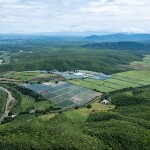Small-scale fisheries in Africa and Asia, where accurate stock predictions are often too expensive to conduct, are underperforming relative to their maximum sustained yields due to undue strain from overfishing, a new study published in Marine Policy has found.
African countries, in particular, are becoming net importers rather than exporters as fishery yields are declining at an estimated 1 million metric tons (MT) per year. Human, environmental, geographical, and ecological factors impact fish biomass and yields, the complexity of which makes it challenging to estimate.
However, a new artificial intelligence (AI) pilot tool managed by the Wildlife Conservation Society (WCS) that, with limited data, can quickly and accurately estimate coastal fish stocks in data-poor areas aims to mitigate the issue and more clearly estimate fish biomass in these types of fisheries.
“People are fishing without knowing the state of their fishery and what the potential is for sustainable fishing. They often do not know if they are overfishing or underfishing in the coarsest terms,” WCS Conservation Biologist and Lead Study Author Tim McClanahan said. “This is particularly true in tropical fisheries where the species of fish are many, the ecosystems are complex, and science is insufficient to answer these questions.”
Applied to Western Indian Ocean coral reefs using biomass data from past research, the AI model produced an 85 percent accurate prediction for fish census biomass data, which in turn, allows fishers to connect overfishing with their inability to meet maximum sustainable yield, as well as lost catch and income.
“The 85 percent we achieved is as high as you can expect, but the question is over how large an area can you use this model – just nearby sites or perhaps the whole ocean? The farther away from your data the model is predicting, the weaker the predictions. But, in many cases poor predictions are better than no predictions,” McClanahan said.
According to the WCS, stock assessments typically employed by developed countries are expensive and labor-intensive, making them nearly impossible for fisheries in countries like Africa and Asia, which have the highest percentage of small-scale fisheries relying on nearshore ecosystems for income and food, to conduct.
Estimating fish biomass is also an important indicator of the health of a coral reef, according to McClanahan, and this data has the potential for use by local and national governments to make informed decisions about ocean resources. This also allows fishers, too, to better manage their efforts and ensure they’re maximizing both their time and efforts.
“I think there are two important results [from the study]. One is that you can predict fish stocks on large scales with modest amounts of field data and use intelligent software. The second is the amount of food, nutrition, and money being lost by not having and working toward benchmarks for sustainability,” McClanahan said.
The study estimated that Mozambique, Kenya, and Tanzania – all of which border the Western Indian Ocean – suffer an export market value loss somewhere between …
Photo courtesy of Dudarev Mikhail/Shutterstock








